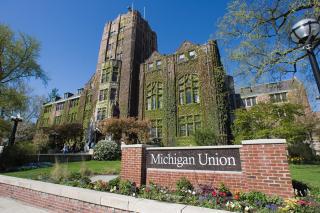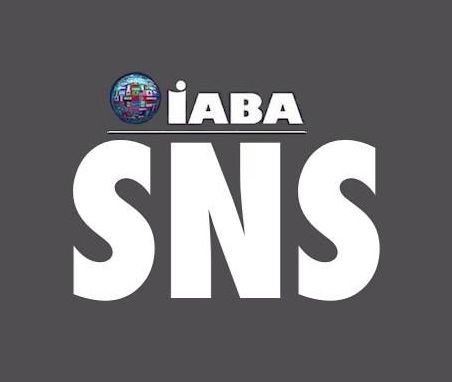Life Writing Graduate Student and New Scholar Network
UNSETTLE: An SNS Roundtable
June 6, 10:30 am -12:00 pm
Encounters Across The Americas: Archives, Technologies, Methods
First Biannual Conference of IABA Americas Chapter
Institute For the Humanities, University of Michigan
We have an exciting lineup of 5 minute presentations for our roundtable event.
Check out the full abstracts below and join us for a riveting critical discussion.

Curating the Self / Sarah Brophy
The term curation is now in widespread use to talk about the preservation, selection, arrangement, and making public of artifacts and data in many domains of life (museums, lifestyle blogs, and digital archives, for example, can all aspire to be called "well curated"). In this elastic 21st C permutation, the work of curation persists in being mystified as an exercise in aesthetic taste. Drawing on etymology, "migratory aesthetics," and examples of critical practice, I argue instead for a view of curation as an ensemble of social, affective, pedagogical, political, and ethical practices, asking what is entailed for projects that "curate the self" when they aim to unsettle epistemic violence and forms of institutional domination.
Sarah Brophy is Professor of English and Cultural Studies at McMaster University. She is the author of Witnessing AIDS: Writing Testimony and the Work of Mourning
(U of Toronto P 2004) and co-editor with Janice Hladki of Embodied Politics in Visual Autobiography
(U of Toronto P 2014).
Endocrine Disruption and Embodied Difference in Spectacular Auto/Biography / Emily Johnston
In 1999, a website appeared online purporting to document the pregnancy of Mr. Lee Mingwei, the first male human to become pregnant through a combination of hormone supplements, in vitro fertilization, and surgical interventions. The website, called POP!, in fact represents an interactive, multi-platform art project, produced collaboratively by performance artist Lee Mingwei and digital artist Virgil Wong. Numerous Internet sources characterize POP! as a hoax, taking the position that POP! is a biomedical ruse that needs to be debunked. Meanwhile, scholars have tended to characterize the project as theatrical spectacle, fantasy, and performative science fiction. In contrast, I approach POP! as an auto/biographical performance that puts pressure on biomedicine as a form of truth-telling about bodies and environments. Reading the project’s interest in hormone-induced bodily changes back onto environmentalist concerns about endocrine disrupting chemicals, I suggest that Lee and Wong’s project disrupts the prevailing environmentalist discourse about endocrine disruption and other forms of environmental toxic exposure. Taking POP! seriously as a speculative auto/biographical performance unsettles ecocriticism and demonstrates how digital environments create new affordances for witnessing to embodied difference.
Emily Johnston received her PhD in English & Women’s Studies from the University of Michigan in 2015. Her work sits at the intersection of ecocriticism, feminist disability studies, and studies in personal witnessing.
Thinking in the Moment: A Pitch for Radical Pedagogy / Eva C. Karpinski
The wave of academic protests rising around the world against neoliberal austerity measures challenges us to think critically about the radical pedagogical potential of the moment. Following the strikes at the University of Toronto, where teaching assistants fought for a decent living wage, and at York, where contract faculty and graduate students demanded tuition indexation and inclusion of LGBTQ as an equity seeking group, I will reflect on what “teaching/learning moments” can be extracted from the present situation. In particular, drawing on the participatory tradition of “Naming the Moment Workshops,” developed during the previous strikes at York, we have been trying collectively to turn the strike into experiential education for graduate students and a catalyst for curricular change for the faculty. I will talk about such initiatives as Free-School events held by CUPE, cultural productions (guerrilla theatre at the picket line, YouTube satire), blogs and listservs, and activist research projects (collecting oral histories, institutional ethnographies, videographies).
Eva C. Karpinski is Associate Professor at the School of Gender, Sexuality, and Women’s Studies at York University in Toronto, where she teaches feminist theory and methodology, cultural studies, autobiography, and translation studies. Her research interests include theories of subjectivity, the body and cancer biopower, feminist ethics and pedagogy, twentieth-century Canadian and American literature, and women’s writing. She has published over 30 journal articles and chapters and co-edited Trans/Acting Culture, Writing, and Memory: Essays in Honour of Barbara Godard. Her book on Canadian and American immigrant women’s narratives, called Borrowed Tongues: Life Writing, Migration, and Translation
(2012), was published in the Life Writing Series
by Wilfrid Laurier University Press.
How Memoirs Unsettle Fiction / Bethany Mannon
In this presentation I describe a category of novels that I call "fictive memoir," in which written (or sometimes spoken) autobiography serves as the frame for a fictional narrative. This technique--which I notice in texts including The Confessions of Nat Turner, The Handmaid's Tale, Gilead, and The Good Lord Bird--is distinct from biographical fiction, autobiographical fiction (i.e. a novel based to some degree on the author's life), and fictionalized memoir or autobiography, and deserves attention from autobiography scholars. Crucially, fictive memoirs imagine a character's act of telling or writing a personal narrative. This plot device introduces explorations of truth, identity, revelation and concealment, and power into the text. Concepts and theories from life writing studies offer a lens through which to examine this type of narrative, and illuminates the novels' critiques of dominant narratives and accepted truths.
Bethany Mannon recently completed her PhD in English and Women's Studies at Penn State University. Her dissertation research focuses on 20th-century and contemporary memoirs by women in the United States.
Counting Lives / Elizabeth Rodrigues
This talk presents a tale of two lifeloggers. One is a middle class white male who has begun recording all of his daily actions, including eating, working, and resting, in the hopes of developing better habits in order to be healthier and make more money. The other is a woman of color, educated although precariously situated on the margins of the middle class, time and again exposing herself to criticism and potentially physical harm in order to continue her project of recording lives lost to racist violence and publicizing her results. Who are these data collectors, and how do they define counting a life? The multiple ways of answering that question not only unsettle our somewhat presentist and technology-dependent view of data collection as representational form but also highlight the raced and gendered dynamics of activist data collection.
Elizabeth Rodrigues is a doctoral candidate in English Language & Literature at the University of Michigan. Her dissertation focuses on data as an epistemological concept and aesthetic form in 20th century U.S. life writing.

Join our event page on FB and receive updates about the presentations and discussions.

Review the complete program of


